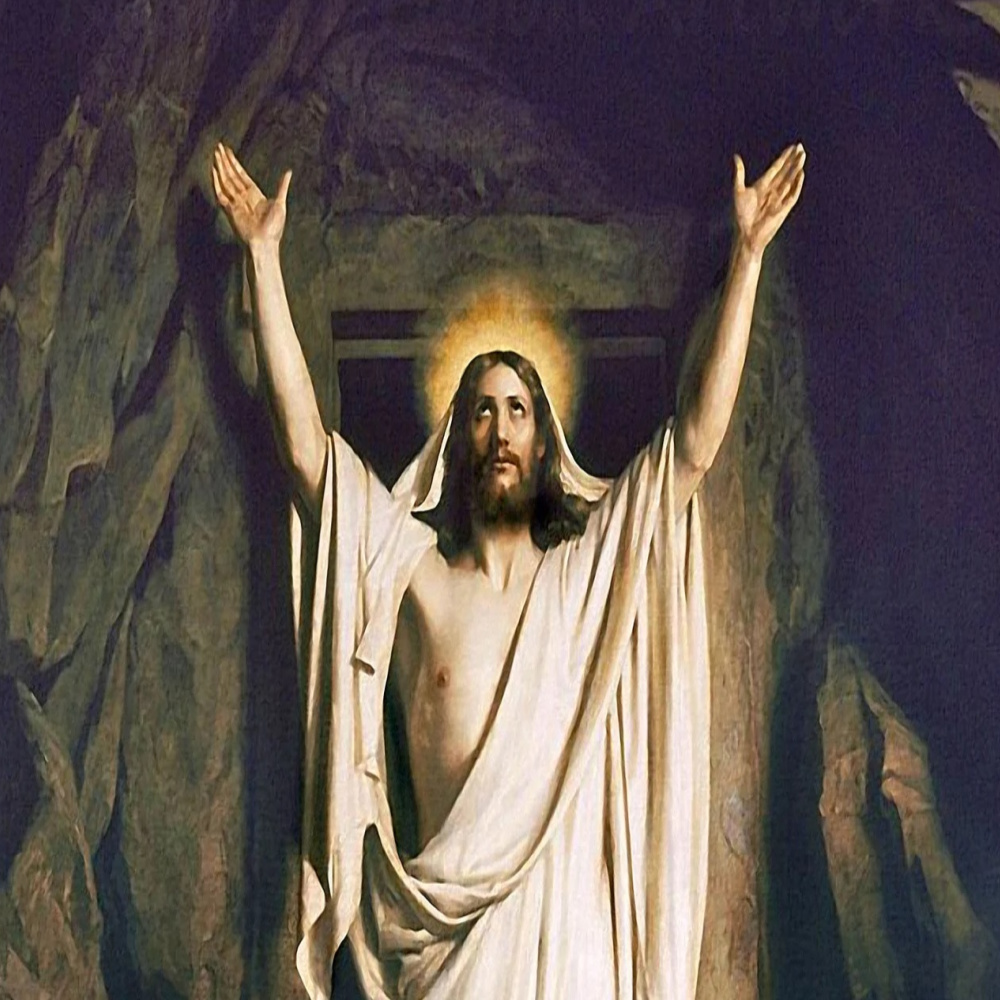In my last two essays, I introduced a concept of “presumptuous certainty,” which refers to the twin human tendencies to believe what we wish were true rather than what is actually true and then to invest those convenient beliefs with manufactured certainty. I also argued that this pattern of believing is a kind of counterfeit salvation that leads towards pernicious extremism. It is also a pattern of belief that is wrong even when the object of its belief is correct.
In Areopagitica, Milton described how being correct doesn’t save a person from being a heretic:
A man may be a heretic in the truth, and if he believe things only because his pastor says so, or the assembly so determines, without knowing other reason, though his belief be true, yet the very truth he holds becomes his heresy.
John Stuart Mill made a similar point in On Liberty:
There is a class of persons…who think it enough if a person assents undoubtingly to what they think true, though he has no knowledge whatever of the grounds of the opinion. . . . This is not knowing the truth. Truth, thus held, is but one superstition the more, accidentally clinging to the words which enunciate a truth.
“[Heresy] in the truth” and “superstition . . . accidentally clinging to the words which enunciate a truth” are apt descriptions of presumptuous certainty, even when the target of that presumptuous certainty is a proposition that happens to be true. What we believe, in many of the important matters, is perhaps even of less significance than why we believe it.
It often matters little why you believe something only that what you believe guides you aright.
There is one obvious, giant exception to this. In purely practical scenarios it often matters little why you believe something only that what you believe guides you aright in your decision-making. It doesn’t matter if you think you should drive on the right side of the road because it’s the law or because aliens told you to do so. As long as you adhere to the rule, you’ll be fine. But these practical beliefs—those where we get immediate, direct feedback from our actions—are a special case of belief where the problem of presumptuous certainty is of least concern, so let us set them aside. These are not the heresies and superstitions Milton and Mill had in mind.
The idea that what we believe is not the whole story was implicitly but clearly taught by Jesus Christ, who frequently praised or chided the people he met with for their faith or lack thereof. But it wasn’t the content of their belief that merited moral evaluation.
One does not morally praise or reward someone for getting a matter of objective fact right or wrong. Although mistaking reality may somehow reflect moral failings, such as a lack of diligence, miscalculations are not moral failings in and of themselves. To get the wrong answer to a propositional question is not a moral matter, whether the question is a calculus problem, a trivia question, or the existence of God. Therefore, if God is fair to pass moral judgment on the basis of our faith in Him (or the lack thereof), faith must be something other than (or more than) a propositional matter.
One could try to get around this argument by saying that God’s justice is not our justice. There’s certainly truth to that, in that we have no guarantee that God’s judgments and actions will always seem fair from our perspective. That does not mean that the principle of God’s justice is fundamentally different from the intuition of fairness that God gives to all humans (and even animals). Instead, it reflects ignorance on our part of all the relevant considerations which God takes into account. God’s justice surpasses our own, but it doesn’t conflict at a foundational level with the moral intuition He has given us.
Thus, the moral salience of faith in God demonstrates to us that the content of our belief is not the whole story. The propositions we accept or reject are not the only considerations.
So let us consider a religious equivalent of presumptuous certainty: a blind, unyielding assertion that your religious community must be true simply because it’s yours. In this scenario, let us stipulate that your belief stems from the self-flattering convenience of assuming your tribal group has all the answers.
Can you honestly say that there is any moral difference between a theist and an atheist who each operate under this basic principle? The theist happened to have been raised with a religious background, the atheist with a secular one. Each employs an identical strategy. Will God reward this type of theist merely because their particular proposition happens to be true? Not a whit more than God—being fair—will punish the atheist. Theism of this type is just another heresy or superstition that happens to be true. Life is not a theology test, and God will not reward you just for having the right answers to doctrinal questions.
We have to conclude that presumptuous certainty—even when it happens to land on correct propositions—is not faith. If you “believe” in God for the wrong reasons (i.e. self-flattering or convenient ones), you may as well not believe in God.
Religious “faith” that is mired in presumptuous certainty is brittle and fragile.
How many people out there today assert their particular religious dogmas (whatever they happen to be) as a form of presumptuous certainty? They have answers, of a sort, but they do not have faith. They may have a handle on true propositions, but they do not have knowledge. This is one reason why it’s so important to talk about intellectual humility: its prideful opposite—presumptuous certainty—precludes the possibility of genuine faith.
That is not the only reason, however. In terms of practical considerations, religious “faith” that is mired in presumptuous certainty is brittle and fragile. This goes back to what I wrote last time: presumptuous certainty leads to absolutist beliefs. Humans have a low tolerance for ambiguity, so when we choose what to believe for convenience (as is the case with presumptuous certainty) it’s likely we choose beliefs that have little or no ambiguity to them. Such beliefs are brutally simplistic and make no accommodations for the complexities and ambiguities of real life. Convictions of this kind are showcase convictions: pristine, flawless, and prone to shattering if handled roughly. And life will handle us all roughly at some point.
How many people who once believed that they believed in God walked away from Him forever when, shaken by some jarring realization or tragedy, their brittle belief shattered? Although their erstwhile belief may have served them no good, since it was not genuine faith, how much harder might it be to convince them that the “faith” they have rejected wasn’t the real thing and that they should reconsider the existence of God? I make no claim to have found the one, true cause of all faith crises, but this is certainly a factor.
The great tragedy of folks who go through this variety of faith crisis is that they reject the content of their belief without ever reconsidering the rationale for their beliefs.
Presumptuous certainty sets people up for failure by instilling fragile facsimiles for real faith that, once abandoned, can mislead them into staying away from the real thing they don’t realize they never knew.
The great tragedy of folks who go through this variety of faith crisis is that they reject the content of their belief without ever reconsidering the rationale for their beliefs. These are the people that primatologist Frans de Waal calls “serial dogmatists”. They “crave dogma, yet have trouble deciding on its contents.” De Waal, in The Bonobo and the Atheist, cited Christopher Hitchens as a case study:
Hitchens was outraged by the dogmatism of religion, yet he himself had moved from Marxism (he was a Trotskyist) to Greek Orthodox Christianity, then to American Neo-Conservatism, followed by an “antitheist” stance that blamed all of the world’s troubles on religion. Hitchens thus swung from the left to the right, from anti-Vietnam War to cheerleader of the Iraq War, and from pro to contra God. He ended up favoring Dick Cheney over Mother Theresa.
Another, and perhaps the most important but also banal, reason why presumptuous certainty is so dangerous is that it precludes people as a group from effectively discussing and debating ideas and coming to, if not the truth, at least civil accommodations. The kinds of beliefs adopted via presumptuous certainty—because they tend towards absolutism—do not play nicely with others. They also—because they tend towards brutal simplicity—do not lend themselves towards useful policies (in the political rather than religious realm). Presumptuous certainty is thus a serious handicap on healthy discussion and forward progress.
The purpose of life is not to possess the right set of answers to theological questions like some kind of bingo card.
If this essay—especially some of the claims about motives mattering more than conceptual content—makes you nervous or defensive: good. My thesis has been from the beginning that life is difficult by design. It’s supposed to be hard. If the purpose of life was to fill out a list of correct beliefs, then God would not have made the answers to basic questions so hard to find. God hides His very existence from casual observation not because He is toying with us but because the pursuit of Him is the point. God allows a multitude of fractious religions to claim that they have the truth not because He is incapable of settling disputes, but because working through the ambiguity is what we’re here for. “Ultimately,” Viktor Frankl wrote, “man should not ask what the meaning of his life is, but rather must recognize that it is he who is asked.” The purpose is not to possess the right set of answers to theological questions like some kind of bingo card. To come to the truth we must often first pass through a lengthy refinement of arduous searching.
No, that doesn’t mean that having answers is irrelevant. Anyone who claims to care only about seeking and not about possessing the answers doesn’t actually care about seeking truth after all. A genuine pursuer of truth earnestly wants to possess it. This is in stark contrast to the legions of “seekers” who only pretend to search without really wanting to find anything. The thing that differentiates true seekers from the pretenders is that, after enough time has gone by, the true seekers will have at least some beliefs that they really do have firm convictions around, even if they’re still fruitlessly searching for many more. They may not even be absolutely certain of these few, cherished convictions, but they will not readily abandon them either. They willingly sacrifice and suffer to maintain what truth they have found, whereas the pretenders have no genuine convictions at all, and will abandon any of their beliefs if they grow costly.
We should be circumspect about what we know, but never stop trying to know.
The intentional difficulty of life entails humility in our approach to the big questions, but not apathy or casualness. We should be circumspect about what we know, but never stop trying to know.
There are those who say that humility erodes conviction, but if the kind of certainty they proffer as an alternative is presumptuous certainty—that is, a kind of tribalistic, radical embrace of their chosen sect—then they are superstitious heretics even if their chosen sect is correct. What they are promoting is neither true knowledge nor true faith, but pride.
The kind of faith and conviction that come through intellectual humility may not appear as strong at first glance, but looks can be deceiving. The bravado of presumptuous certainty is superficial. Inside, it is dead and brittle. It may awe and impress for a time, but it will not survive the storm.
The faith attained by the humble may be quieter and smaller but it is alive. What may strike some as a defect—it’s provisional, inquisitive nature and admission of uncertainty and ignorance—is in fact the sign of its greatest strength: it lives.
Dead faith is attractive because it never changes. You know what you’re going to get. True disciples have living faith: they never know for sure where it will take them. They cannot control or fully predict the growth of their little sapling of faith because it is not theirs. It is God’s.

















